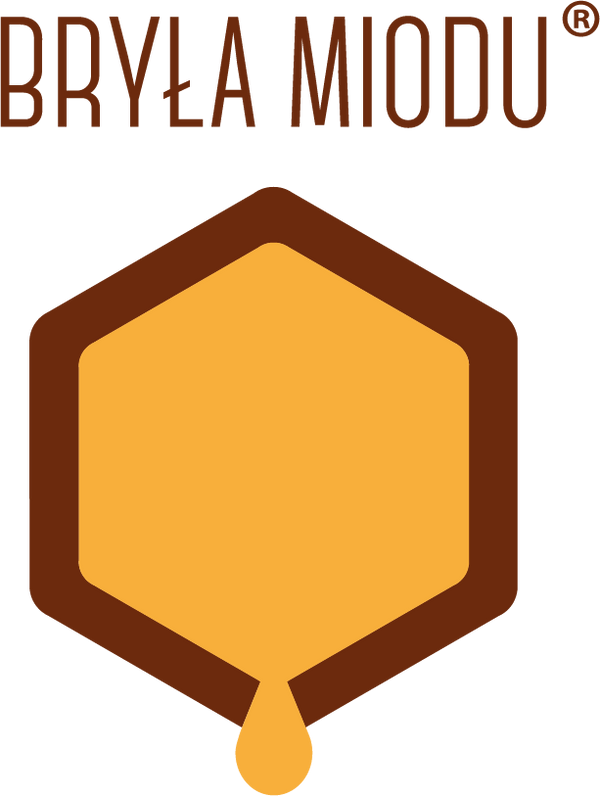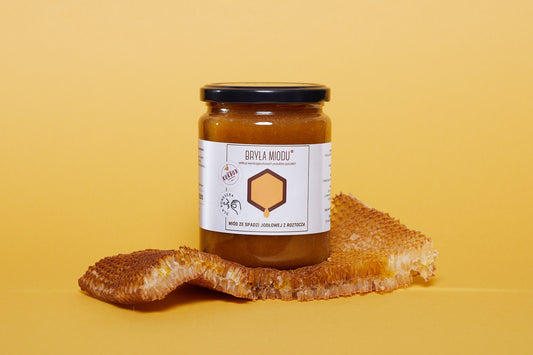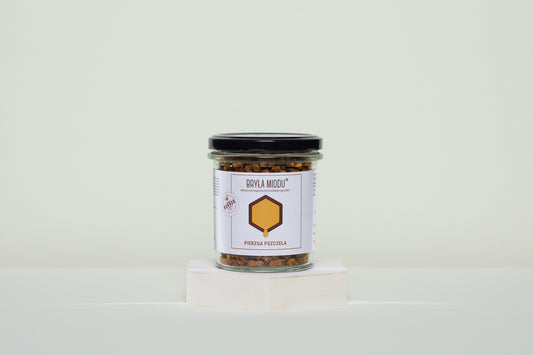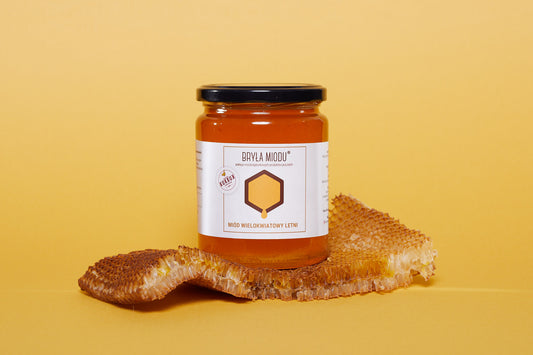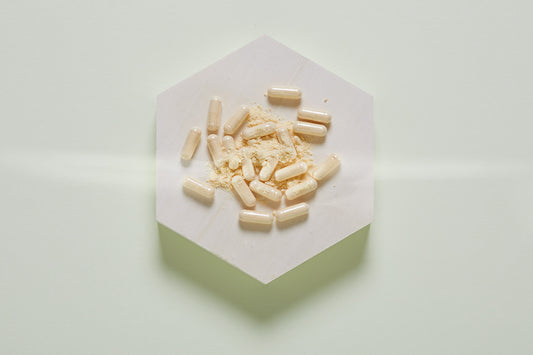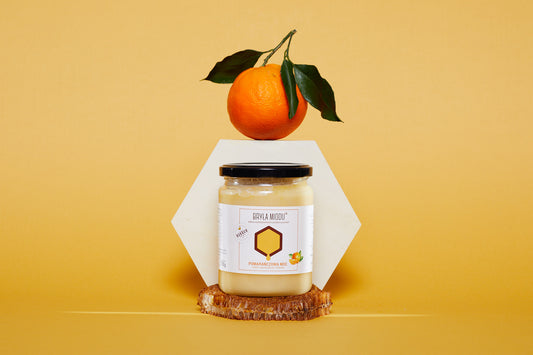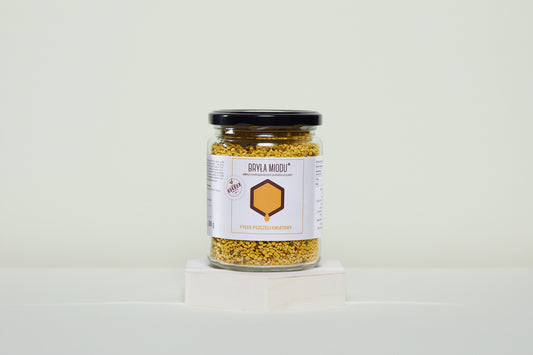There are many treasures in nature that help maintain good health. One of them is propolis, often called a natural antibiotic . It is a mysterious substance, used for centuries in folk medicine and increasingly appreciated by modern researchers. In this article, we will take a closer look at this fascinating bee product phenomenon and find out why propolis is gaining popularity.
Propolis, a natural antibiotic - formation and composition
Also known as bee glue , propolis is a substance considered a natural antibiotic produced in hives by bees. The process of its production is a fascinating example of cooperation in the society of these beneficial insects. The source of propolis is resin, which serves as a natural protection for trees against pathogens and pests. Bees obtain it mainly from tree buds, but also from bark and trunks. After collecting the resin, they take it to the hive, where it is transformed into propolis. The insects mix the resin with wax, pollen and enzymes produced by their salivary glands. This mixture of ingredients gives propolis its characteristic consistency and properties.
The composition of propolis may vary depending on the resin flow and the location of the hive. Bees use different species of trees, which affects the content of chemical compounds in propolis. Therefore, its structure is extremely diverse and complex. Nevertheless, we can distinguish the most important ingredients. Among them, it is worth paying attention to:
- Flavonoids - a group of chemical compounds that constitute the main biologically active ingredient of propolis. These are powerful antioxidants that help protect the body's cells against oxidative stress.
- Phenolic acids - are responsible for the antibacterial and antifungal properties of propolis.
- Essential oils - give propolis its characteristic scent and have antibacterial properties.
- Vitamins and microelements : B1, B2, B6, C, magnesium, zinc and iron.
Thanks to this diversity of ingredients, propolis is considered a substance with therapeutic potential that can support our health in various ways. In the following chapters, we will take a closer look at the health properties of this natural antibiotic and its applications in medicine.
Health properties of propolis
Widely considered a natural antibiotic, propolis has impressive health properties that are attracting the attention of natural treatment advocates and scientists alike. It is worth noting that its medicinal role is not new. For centuries, it has been used by various cultures as a valuable element of folk medicine.
Propolis in the traditions of folk medicine
Many cultures around the world use propolis as a medicine for various ailments. The ancient Egyptians used it to embalm the bodies of the dead, but also to heal wounds. In traditional Chinese medicine, propolis was used to relieve sore throats, coughs and respiratory infections. In Poland and other Slavic countries, propolis was widely known and used as an antibacterial and anti-inflammatory agent to treat mouth and throat infections and wounds.
Properties appreciated in conventional medicine
Today, scientific research confirms many uses of propolis that have been known for centuries. Here are some of its key health properties:
- antibacterial effect - flavonoids contained in propolis help fight bacterial infections. Studies have shown that propolis can be effective in the fight against various strains of bacteria, including those resistant to antibiotics,
- antiviral effect , i.e. the ability to inhibit the multiplication of viruses, which makes propolis a valuable tool in the fight against viral infections such as colds and flu. Scientists suggest that propolis shortens the duration of these diseases and alleviates their symptoms,
- antifungal properties - may be effective in fighting fungal infections such as nail fungus or yeast infections,
- strengthening immunity - regular consumption of propolis or its use as a supplement can support the immune system. Flavonoids and other ingredients help the body fight infections and stimulate the production of antibodies. Top of the form
Propolis is a natural antibiotic
In today's world, where bacterial resistance to conventional antibiotics is becoming a growing health problem, the search for alternative anti-infection agents is more important than ever. In this context, propolis, often called a natural antibiotic, is becoming the subject of intense research and interest of scientists.
Antibacterial properties
Propolis is known for its powerful antibacterial properties as it contains many compounds that have the ability to inhibit the growth of many types of bacteria, including those resistant to conventional antibiotics. Laboratory tests show that propolis can effectively fight Gram-positive and Gram-negative bacteria , making it a versatile element in the fight against various infections.
How does propolis fight bacteria?
The mechanisms by which propolis fights bacteria are complex and still under investigation. Some of his activities include:
- damaging bacterial cell membranes,
- disrupting metabolic processes in bacterial cells,
- stimulation of the immune system.
The importance of reducing bacterial resistance to propolis
One of the key aspects of the natural antibiotic propolis is the fact that bacteria are much less likely to develop resistance to its action compared to pharmaceutical antibiotics. This means that propolis can be an effective remedy for infections that are difficult to treat with conventional drugs .
The use of propolis in medicine
Propolis is used, among others, in the treatment of throat infections, wounds, skin infections and many others. More and more propolis-based products are available on the market, including ointments, throat sprays and dietary supplements. A growing number of studies confirm its properties that are valuable for medicine. Here are the activities for which the health-promoting properties of propolis are used:
- treatment of throat and respiratory infections, wounds, burns, and also skin infections,
- strengthening immunity,
- treatment of oral problems,
- preventing heart diseases,
- treatment of digestive system problems,
- potential anticancer applications.
Research into the use of propolis in medicine shows its potential as a valuable tool in both promoting a healthy lifestyle and supporting healing processes .
Propolis in the barylamiodu.pl store
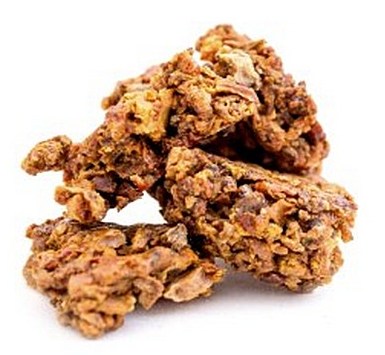
The natural antibiotic propolis is a real treasure of nature. That is why its unusual chemical composition and broad spectrum of action are gaining more and more supporters. It is a perfect example of how valuable substances found in nature can support our health in an effective and safe way.
In our store we offer 50g of propolis , from which you can easily make an excellent tincture yourself. How to do it? Read below.

Propolis tincture - some preliminary remarks
The latest scientific research in the field of apitherapy has proven that propolis has its full effect as an alcohol extract , therefore the simple method of preparing the tincture used by beekeepers seems to be the only correct one. So don't be fooled by non-alcoholic tinctures. Their availability is increasing in herbal shops and pharmacies, but their effect is negligible. Therefore, we recommend buying pure propolis and preparing the tincture yourself at home or purchasing it only in places that are allowed to produce it based on alcohol.
How to make propolis tincture yourself?
Use 50 g of pure propolis and 250 ml of rectified spirit. After grinding, propolis should be poured with alcohol, then closed tightly and left for at least 14 days in a dark place. Shake the bottle every day. After this time, strain it with gauze and pour the tincture into a dark glass bottle, preferably with a convenient dispenser. Since the tincture expires after half a year from preparation, it should be disposed of after that time.

Ready-made propolis tincture
We offer 30 ml propolis tincture prepared by us with a concentration of 20% in a bottle with a convenient dropper. The tincture for internal use for adults is used as follows: 20-40 drops with honey (approx. 1/2 teaspoon), sugar or for people suffering from diabetes - with a little water or tea, consume for 14 days . Since propolis has a strong natural antibiotic effect, after this time you should take a break for another two weeks.
If you are interested in the topic of propolis, it is worth watching an interesting film about it available at this link .
______________
Title illustration - photo by Pasieka24.pl
